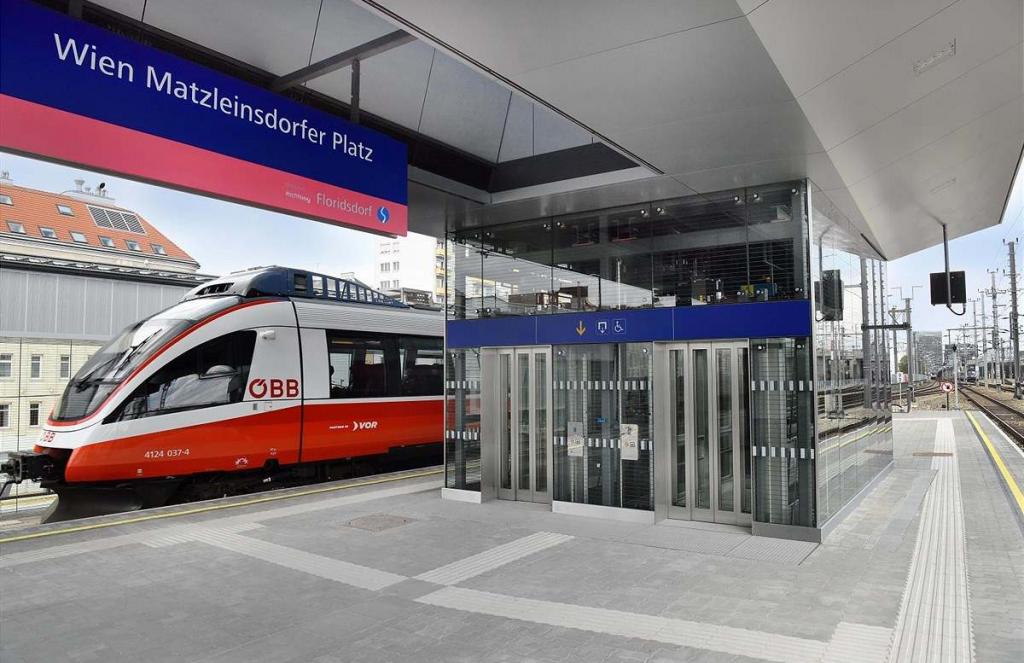Thessaloniki gets ready for its metro launch in November
The underground rapid transit lines have been under construction for almost two decades due to various project delays
 TheMayor.EU logo
TheMayor.EU logo 
After the Floridsdorf–Meidling route is finished, turnaround times should be about 2.5 minutes in rush hour , Source: ÖBB
Currently, only 26% of the Viennese avoid using public transport, cycling or walking and, according to Mayor Ludwig, this will change in the future
Yesterday, authorities in Vienna announced a 2.4-billion-euro investment going towards the city’s urban rail network, the S-Bahn. The investment will go towards revamping and expanding the existing connections, as well as new double-decker trains.
The funds will come from the ÖBB (the Austrian national rail company), the City and the Ministry of Transport, with a focus on the redevelopment of the eastern and southern parts of the Austrian capital. This, according to a statement by the ÖBB, is due to the fact that those parts see the most continuous growth.
The eastern portion of the city in particular is home to Donaustadt, a massive housing and urban development project, with thousands of new homes. One of the problems with Donaustadt is that it is located on the far side of the river. Thus, authorities have launched many mobility and infrastructure projects, like a bicycle expressway, to provide links across the Danube.
One of the cornerstones of the investment is the digitalisation of the Floridsdorf–Meidling leg of the S-Bahn line. With the project set to be completed in 2027, and according to authorities, the line will improve on nearly all metrics – speed, comfort and safety. In fact, they estimate that the turnaround time in rush hour could be as low as 2.5 minutes.
In addition to the redevelopment and expansions, the S-Bahn will get 41 new double-decker trains with a contract already signed with Stadler. According to the city, the trains will enter service in 2026 and will be able to move significantly more people, bicycles and luggage.
Viennese Mayor Michael Ludwig explained in a press release that public transport is the backbone of the city’s mobility and the investment would only cement its role. “We already have an exemplary modal split of 74:26 in Vienna. This means that almost three quarters of the Viennese population use public transport, cycle or walk. And we want to significantly increase this share in the future.”

The underground rapid transit lines have been under construction for almost two decades due to various project delays

Now you can get your wine in Talence by paying directly in Bitcoin

That’s because the state has to spend money on updating the railway infrastructure rather than subsidizing the cost of the popular pass

Rethinking renewable energy sources for the urban landscape

The examples, compiled by Beyond Fossil Fuels, can inform and inspire communities and entrepreneurs that still feel trepidation at the prospect of energy transition

Now you can get your wine in Talence by paying directly in Bitcoin

The 10th European Conference on Sustainable Cities and Towns (ESCT) sets the stage for stronger cooperation between the EU, national and local level to fast track Europe's transition to climate neutrality.

At least, that’s the promise made by the mayor of Paris, Anne Hidalgo

The underground rapid transit lines have been under construction for almost two decades due to various project delays

At least, that’s the promise made by the mayor of Paris, Anne Hidalgo

Hostal de Pinós is located in the geographical centre of the autonomous region

Despite its church-y name, the district has long been known as the hangout spot for the artsy crowds

Urban dwellers across the EU are having a say in making their surroundings friendlier to people and the environment.

Forests in the EU can help green the European construction industry and bolster a continent-wide push for architectural improvements.

Apply by 10 November and do your part for the transformation of European public spaces

An interview with the Mayor of a Polish city that seeks to reinvent itself

An interview with the newly elected ICLEI President and Mayor of Malmö

A conversation with the Mayor of Lisbon about the spirit and dimensions of innovation present in the Portuguese capital














